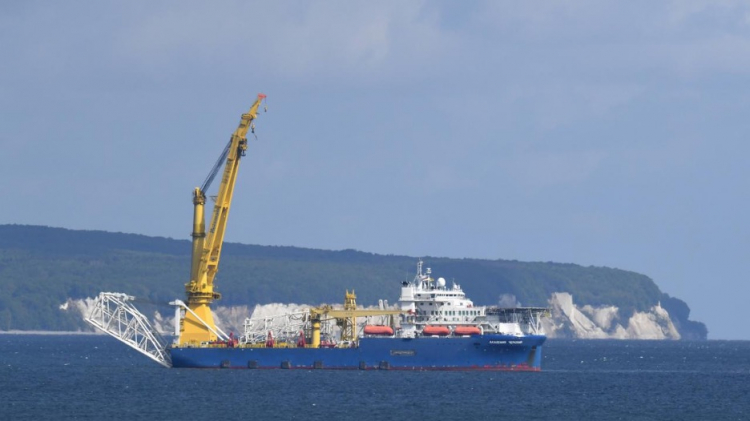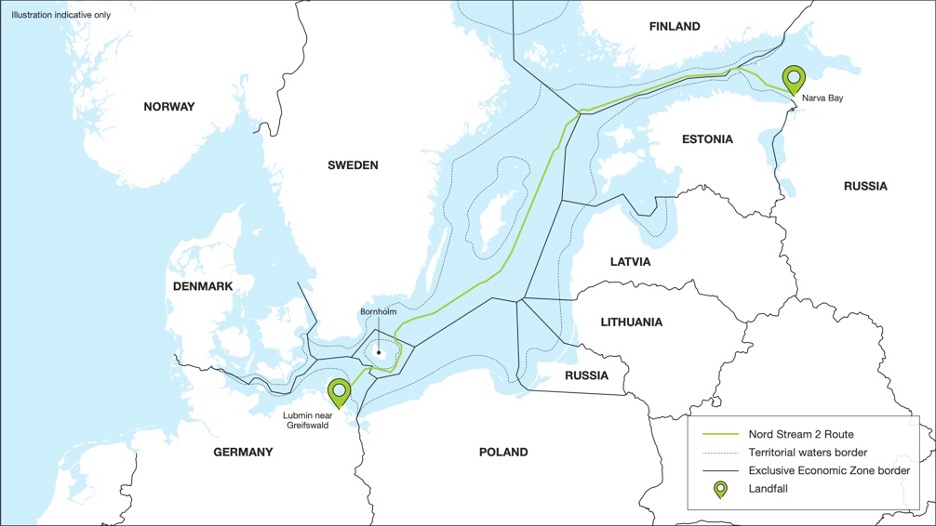Anything but a “Frozen Conflict”

Last week, outgoing US Ambassador to Germany and former Acting Director of National Intelligence Richard Grenell told the Handelsblatt, a leading German language business newspaper, that Germany and Russia should expect fresh US sanctions to impede the completion of their Nord Stream 2 pipeline. But there remain many questions of what form these sanctions would take, and whether or not they could be passed quickly enough to stop the project’s completion - there is a mere 6% left to lay and a Russian ship capable of completing the project, the Akademik Tscherski, has just completed a two month long voyage to re-position itself off the coast of Germany in the Baltic Sea.
New Hampshire’s Senior Senator Jeanne Shaheen is well acquainted with this issue - at the end of 2019, it was she and Republican Senator of Texas Ted Cruz that successfully included legislation in the National Defense Authorization Act to compel Allseas, a Swiss company then working on the project, to stop work under the threat of US sanctions. Unfortunately, this was just a temporary solution, and Russia, via its state-owned oil and gas company, Gazprom, along with their German partners, has remained defiant in completing the pipeline. In response to this latest threat of sanctions from the US, a spokesman for Nord Stream 2 emphasized that the project is in accordance with international law and will be completed as planned.
Nord Stream 2 Project
As market demand for natural gas around the world has increased in recent years due to the need to move away from fossil fuels, Russia has sought to expand its market share – particularly in the European Union through Germany. The Nord Stream 2 pipeline, which would connect the two countries, does this. Moreover, in short, what makes this project of critical geostrategic importance to US national security interests is that pipeline promises to allow Russia to bypass Ukraine – a key US and NATO ally in Eastern Europe. Back in December, it was actually Shaheen and Cruz’s legislation that compelled Russia to sign a new five-year transit contract with Ukraine – an important agreement for Ukraine given its economic benefits, as well as the leverage it gave them vis-à-vis Russia in their ongoing war with them in the Donbass region.
The Nord Stream 2 pipeline connects Russian and German gas markets - bypassing Ukraine. Image Credit: Nord Stream 2 Official Website
Ukraine-Russia’s “Transnational” Conflict
There are of course significant historical / civilizational sources of division that drive the Ukraine-Russia conflict, most importantly the Annexation of Crimea in 2014; however, it is important to consider that this conflict has now become a “transnational” one – many cross-border relationships between individuals and groups of people are impeding the resolution of the war in the Donbass region. In other words, to date, a multitude of factors, including economic conflicts like this Nord Stream 2 project, are impeding traditional conflict resolution strategies like the Minsk Agreements from providing a peaceful resolution to the conflict. Over the past six years, in total, the conflict has killed more than 13,000, wounded more than 25,000 and forced 2.5 million people from their homes. Concerningly, even in the light of the COVID-19 pandemic, deadly fighting continues – with five government soldiers, eleven Russian-backed fighters, and one civilian killed in the month of April according to official and unofficial reports from the OSCE.
Conclusion
In conclusion, while there are certain other economic forces at play like the US’ interest in selling their liquefied natural gas to Europe, conflict over the Nord Stream 2 project is one of the latest manifestations of the still unresolved (not “frozen”) Ukraine-Russia conflict, which broke out in 2014. Another round of sanctions promises another temporary fix to a conflict that clearly is in need of a more multi-step, multi-modal process– like the one advocated for by the Euro-Atlantic Security Leadership Group composed of experts from think tanks in the US, Russia and Europe. And yet, they seem to be looming as the only option lawmakers have at their disposal in Washington. As for Ukraine and the Donbass region, they are the ultimate losers, as it seems likely that violence will continue to rage while the “transnational” forces in the region pursue their respective economic interests.








